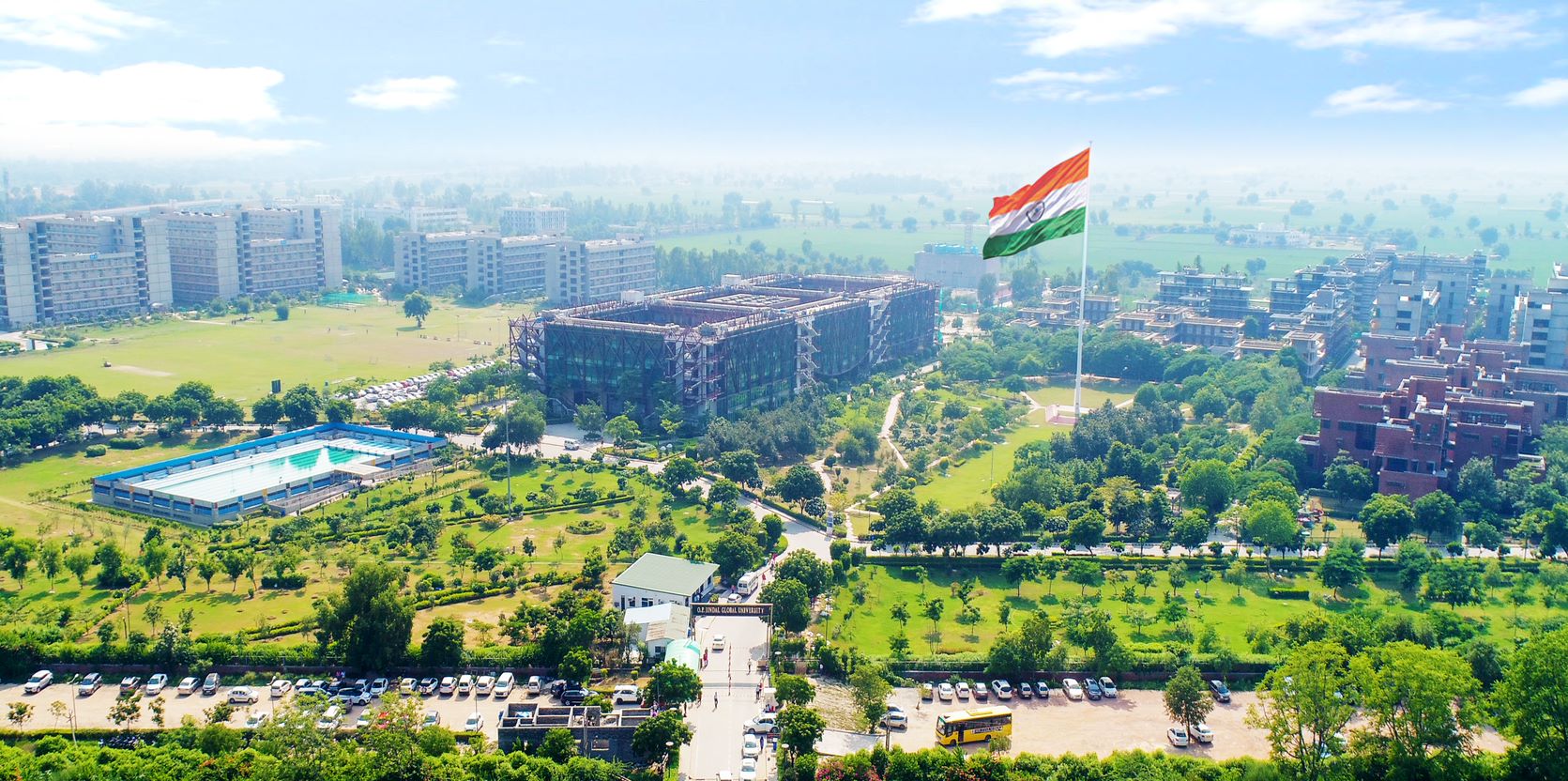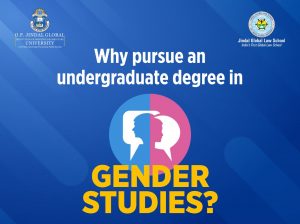Combining aspects of environmental law, energy and climate change with legal expertise from India’s number one law school, Jindal Global Law School, and field-based expertise from a premier conservation organisation, WWF India, makes this LL.M. truly one-of-a-kind.
Environmental challenges are rapidly rising. From sinking coastlines to smoggy skies and shrinking forests, the world is witness to the brutality of environmental negligence and devastating effects of climate change, now more than ever. The Centre for Environmental Law, World Wide Fund for Nature India, in association with Centre for Post Graduate Legal Studies, Jindal Global Law School, O.P. Jindal Global University offers a one-year LL.M. in Environmental Law, Energy & Climate Change to equip a capable, committed, conscious generation of lawyers to tackle environmental issues in today’s world.
The course is especially designed to offer a niche learning experience to law graduates who want to strengthen their knowledge in the field, develop specialised legal training and gain the necessary expertise, experience and exposure to go further into the field of environmental law and allied areas.
Launched in 2019, the first-of-its kind LL.M. programme saw a small yet strong batch of passionate students in its first year. Most of them were already practicing law. It has quickly proven to be an excellent choice to expand existing careers for professionals already working in environmental law, and a stepping stone for those who desire to enter the field of practice.
For its first batch, that’s exactly how it all panned out.
“Environmental lawyers and researchers, conservationists, practising advocates, academicians and policy-makers add a lot of life and substance to the courses. I really like the quality of discussions we usually have with the subject-experts both inside and outside the classrooms,” shares alumnus Mr. Neeraj Nachiketa, talking about the remarkable mentorship during the programme.
The course presents a unique advantage particularly for practicing lawyers such as Mr. Nachiketa, who was keen on enhancing his knowledge, and now aspires to contributing through academic research in environmental sustainability. Graduates are now looking forward to getting into research, litigation and academics—to find solutions for the environment through law.
With admissions open for the upcoming academic year of 2020-21, we look at some of the salient features of the LL.M. in Environmental Law, Energy & Climate Change programme that make it a compelling choice for law graduates passionate about the environment:
Combining the best of legal and field-based expertise
The programme seeks to strengthen the human resource pool by creating efficient environmental lawyers, and covers themes around environment, energy access, and climate change, which are emerging areas that pose innumerable challenges in today’s world. Students will study the relationship of law and legal institutions with these fields from a legal as well as practical perspective. Students will go to the field and look at the real challenges on the ground to get a better understanding of the applications of classroom learning, and gain the empirical knowledge to work on solutions for a sustainable future.
“For WWF India, the dissemination of knowledge around conservation and environmental protection is a key focus area of our work. Parallelly, JGU wanted to incorporate a practical, field-based approach to legal training in these areas,” explains Ms. Moulika Arabhi, Advisor, Centre for Environmental Law, WWF India, discussing how the specialised offering was conceptualised.
It’s the combination of theory and practice that sets the ELECC programme a cut above the rest. The legal academic courses are conducted by the internationally-qualified faculty at O.P. Jindal Global University, while WWF India brings years of field-based expertise through a selection of specialised courses. These include International Environmental Laws, National Environmental Laws, Energy Laws & Policies, Climate Change Governance, Renewable Energy Development in India, Adaptation to Climate Change, and Implementation of Conservation Laws in India: Field Study.
A robust, rigorous curriculum that covers a variety of urgent & emerging themes
Most mainstream Master’s level law programmes typically span two years. However, the LL.M. in Environmental Law, Energy & Climate Change is a one-year programme. Needless to say, it is an intense curriculum. The shorter duration does not compromise in any way on the depth and breadth of learning; instead, the coursework examines all relevant aspects of the themes with meticulous precision, in a bid to skill students in every way possible.
Students will analyse alternate energy solutions, innovations and available technical knowledge in the field; study the impact of climate change on people and places while examining prevalent laws, solutions and strategies across the world; explore the role and impact of domestic and international adjudicatory mechanisms though a critical assessment of national environmental courts and tribunals; examine the issues related to compensation, mitigation and other solutions for damages related to the environment, and more.
“So the only ask we have is that you be willing to give that one year of hard work. Be aggressive in your learning. There has to be an instinct for investigating and understanding solutions. You need research and analytical skills, and motivation to go out in the world and work towards areas that need serious intervention,” appeals Ms. Arabhi to prospective students.
Addressing an urgent need for more environmental lawyers in India
“There’s only a handful of environmental lawyers in India today. There may be not more than 10—that too only after the National Green Tribunal started addressing environmental cases since 2010. And if you consider those whose only focus is environment, then there are not more than four or five,” says Ms. Arabhi.
There is a huge gap for full-fledged environmental lawyers in India; the future looks bright. More young people and seasoned lawyers alike are starting to take interest in the area.
“Energy and climate change undoubtedly remains one of the most interesting and emerging key areas of study of our times. In order to tackle and find conservation recourse, we need a pool of efficient environmental lawyers. ELECC prepares you to become one of the best,” urges Divya Abhishek, an alumnus of the programme. During his stay at O.P. Jindal Global University, Divya was keen on analysing alternate energy solutions, available technical knowledge in the field of environment, energy and climate change and how innovations in the field are best implemented.
Hands-on training becomes the gateway to understanding ground realities
Exclusive field study courses take students to different climate vulnerable sites, where they will spend a few days understanding the impact of environmental issues, implementation of environmental laws, and more.
“They will get a chance to speak to many stakeholders including government, civil society, activists and communities who live in that area to understand the real challenges. Unless you go out and see what the ground realities are, it’s very difficult to understand the whole picture. No other university offers a course where students get to see both conservation work and on-field implementation. This is an experience young people really urge for, but not everyone has access to. We’ve learnt that people are looking for a thorough investigative approach. This is one course that even if students don’t do internships, they get much more experience,” says Ms. Arabhi.
Mentorship under some of the most prominent personalities from law, academia and the environment
Environmental law and related areas of study are coming into focus in higher education institutions in India. A number of universities have introduced such programmes, but a challenge that remains, like in many other courses in the country, is to develop qualitative strength and diversity of faculty. It becomes essential in order to impart a contemporary, cutting-edge education to have mentors on board who are specialists in different areas.
The internationally-drawn faculty and board of advisors of the ELECC programme are all luminaries in their respective fields as both academicians and practitioners. Students can look forward to special guest lectures and seminars by domain experts from across the globe.
“This is the best of what we’re offering our students! There are academicians, lawyers, practitioners, environmental researchers, energy experts, climate adaptation experts, and judges from India and the world over. The few environmental lawyers in India are all teaching in this course. That combination of academic thinking and practical orientation is the best anyone can ask for. It’s not just the degree, but having these interactions and attending many conferences and seminars that give students a unique opportunity,” beams Ms. Arabhi.
The carefully designed ELECC programme has also been effectively implemented to achieve success. WWF & O.P. Jindal Global University’s strides in the field are an inspiration to other institutions to join the capacity-building efforts in environmental law.
A holistic view of national and international contexts
Integrating Indian and international perspectives is important in a world that’s increasingly interconnected. To that effect, the LL.M. programme emphasises a comparative approach to various aspects of the environment and covers how multilateral institutions and climate negotiations impact both domestic and international law and policy. Through pedagogy that includes case studies, solution-based approaches, and an analysis of on-ground scenarios, students will learn to make connections between different variables in the bigger picture.
“The courses are perfectly designed to provide us with an understanding of how international and national environmental laws evolved and how to apply them in various scenarios,” says alumnus Vidhi Thukral, about the programme. In fact, Vidhi was already familiar with culture of JGU as a graduate of Jindal Global Law School, Class of 2016. She had no hesitations in choosing the same to pursue her interest in law and environment.
Preparing graduates for climate litigation—the next big thing in India
Many environmental groups, individuals and lawyers are challenging governments and corporates across the world with climate change lawsuits. As environmental problems pique in intensity, the cause of the environment is also slowly but surely, gathering momentum. From cases against energy companies and deforestation to calling out governments on carbon emissions, extreme weather, the damaging impact of global warming, and more, the fight for climate litigation is a growing force seeking justice for people and the planet.
While the National Green Tribunal has been addressing environmental issues in India, climate litigation per se is still a largely untapped area that needs attention. Particularly in India, given the socio-economic diversity, the powerplay between politics and judiciary, and the sheer complexities of its people, culture, laws, economy and ways of life, climate litigation has to be approached with a nuanced sensitivity.
Yet it is becoming increasingly clear from success stories across the globe, that climate litigation is the need of the hour, to save the world. India, too, needs to tread with caution towards a sustainable future. “We want to train people who can take up these cases and do justice. We call our students ‘enviro-legal experts’. You will have a handle on both the legal and environmental perspectives.” says Ms. Arabhi, talking about the critical ways in which the ELECC programme will impart a holistic training needed to bring forth climate litigation in the country.
“Working on environmental law and policy is a continuous engagement, especially keeping in sight the growing complexities of our times. Like any other legal field, this one comes with its own unique challenges. I believe the course allows one to explore environmental issues surrounding us all and equips us with the legalese to solve them,” believes Nipun Mudgal, an alumnus of the programme who holds a keen interest in environmental litigation. Nipun now aspires to establish himself globally in the field of environmental law.
Pathway to a diversity of career plans
Legal training rooted in practical environmental perspectives gives students a unique understanding to effect climate action and solve environmental challenges of today’s world.
“The combination opens all kinds of avenues. You can choose to be environmental lawyers or litigants. There are many environmental organisations and law firms that need trained environmental law experts. This degree will also help you in environmental law research, an area which needs a major focus now. There need to be people who can produce quality research which can then be used by courts or converted into petitions to challenge environmental matters. There’s also a huge potential of getting into academics. Of late, there are many universities who’ve realised the importance of these subjects and are launching courses around environmental laws, climate change, environmental sciences and climate policy. In terms of career opportunities in environmental law, this is the course to apply for!” explains Ms. Arabhi.
Though a specialisation that leads to niche legal careers, graduates can also contribute to environmental and conservation organisations in other capacities with the exposure they pick up during this programme. The doors to policy-making and administration are also open. In fact, for those passionate about public service, the intersection of law and environment can create a strong foundation and higher impact.
In a bid to keep it as open and inclusive as possible for working professionals, classes are held on Thursdays, Fridays and Saturdays. It’s a good choice for practicing lawyers to specialise in the field without compromising on their careers.
In the backdrop of environmental law education coming up in India, WWF & JGU provide a clear advantage through the LL.M. in Environmental Law, Energy & Climate Change programme, with its specialisations, robust curriculum, world-class mentorship, and learning environment that combines the best of theory and practice.




